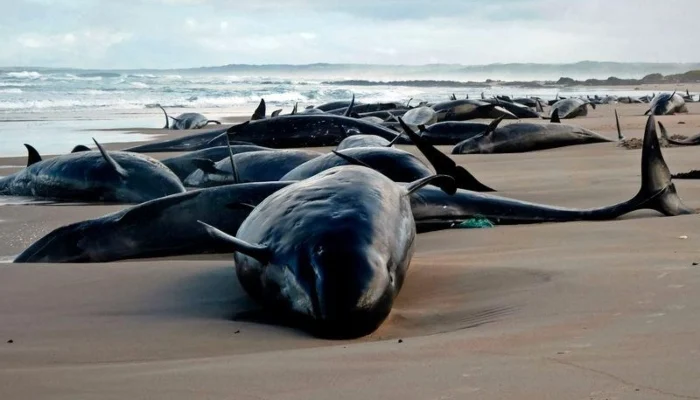In a heartbreaking turn of events, a pod of 157 dolphins has become stranded on a remote beach in Australia, sparking a massive rescue effort. Wildlife experts and volunteers are racing against time to save as many of these marine creatures as possible while trying to determine the reasons behind this mass stranding.
A Race Against Time
Rescuers are working tirelessly to return the stranded dolphins to deeper waters. However, the isolated location of the beach presents logistical challenges, making the operation even more difficult. Marine conservationists are utilizing specialized equipment and mobilizing emergency response teams to increase the chances of survival for the dolphins.
Possible Causes of Mass Strandings
While the exact cause of this incident remains unknown, experts speculate that factors such as navigational errors, environmental changes, or sonar interference from human activities could have played a role. Previous cases of mass strandings have been linked to disruptions in marine ecosystems, raising concerns about the impact of climate change on ocean life.
The Global Concern for Marine Life
Mass strandings are not uncommon, but they highlight the urgent need for better marine conservation efforts. Scientists emphasize the importance of studying such incidents to understand marine behaviors and implement protective measures to prevent similar occurrences in the future.
Conclusion
The tragic stranding of 157 dolphins on an Australian beach has captivated global attention, drawing concern for marine conservation efforts. As rescuers continue their mission, the event serves as a stark reminder of the delicate balance in ocean ecosystems and the urgent need for increased awareness and intervention.



Comments (0)
No comments yet. Be the first to comment!
Leave a Comment